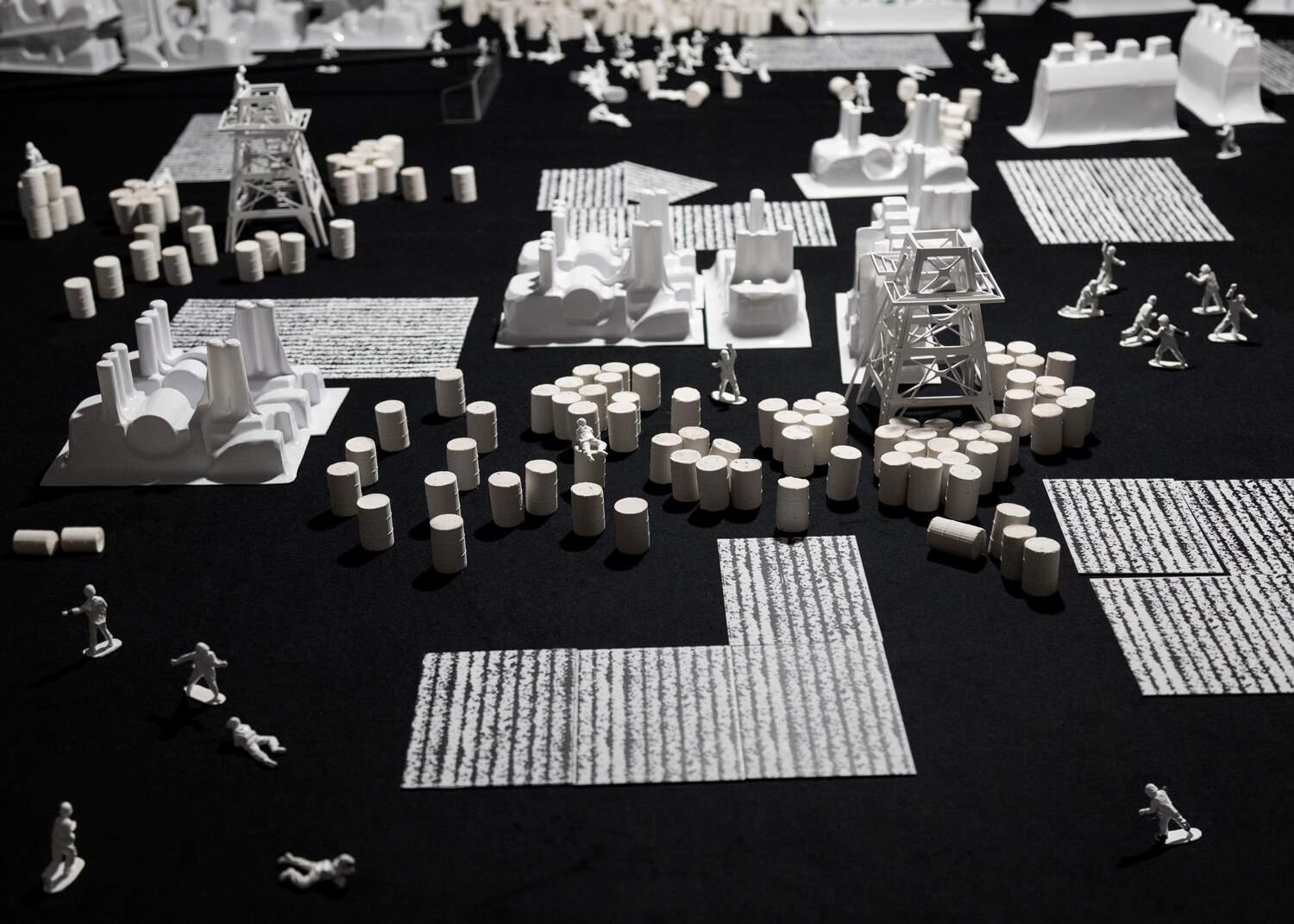The critical approach adopted by Valentin Defaux proposes putting into perspective the complex system of modeling that laid the ground work for the Meadows report’s conclusions through a computer-assisted board game. In the wake of Guy Debord, who designed in 1977 his version of the Kriegsspiel (war game), reproducing the whole network of strategic and tactical interconnections of war following General Clausewitz’s treatise, Defaux’s own World3 Boardgame brings together all of the factors considered in the Meadows report as pieces that can be handled and moved around, including population size, volume of food production, level of industrialization, pollution control, and consumption of nonrenewable natural resources.
In light of the various eventualities they are willing to contemplate, participants decide on a common strategy. With each of their decisions, the computer, steered by the artist, maps out the developments the world will witness over a period of ten years. By way of an example, opting for continued growth leads to the brutal collapse of living standards because of the lack of energy resources, the explosion of pollution, and the shortage of food. On the other hand, if we assume a policy is implemented that preserves natural resources but without gradually reducing the number of births, the shortfall in harvests causes a famine, and so on, to 2100. The outcome of the game depends on a clear-eyed analysis of how the ecological situation the players are put in develops.

